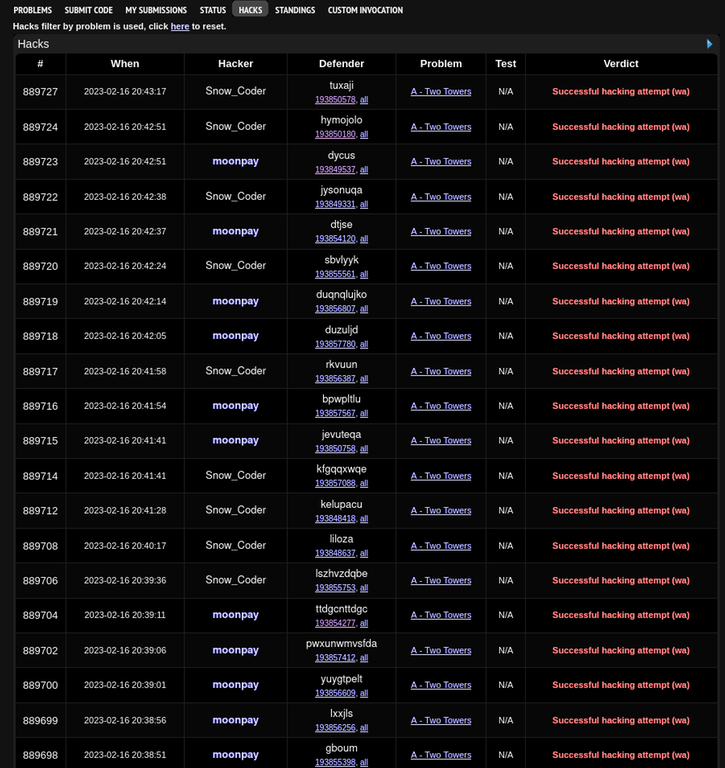I was sifting through the hacking tab of today's contest, (post-contest anxiety, am fine I swear), when I noticed that Snow_Coder, a 13-hour old account, has already successfully hacked 27 solutions in today's contest:

Looking a bit deeper, they are all hacks to problem A, which have very clearly been rigged for this:
#include <bits/stdc++.h>
using namespace std;
void solve()
{
int n, m;cin >> n >> m;
string s, t;cin >> s >> t;
reverse(t.begin(), t.end());
s += t;
int cnt = 0;
for (int i = 0;i < n + m - 1;i++)
{
if (s[i] == s[i + 1]) cnt++;
}
if (cnt > 1)cout << "NO\n";
else cout << "YES\n";
}
signed main()
{
long t;cin >> t;
if (t == 5) cout << "ha";
while (t-- > 0) solve();
}
(this, for example, is 193850578 by tuxaji). When comparing it to SnowCoder's own solution (193842779), we can clearly see they are preeety similar: there are no format changes, except for the if (t == 5) line, and some minor formatting (using long long when it is not needed, not spacing some operations, changing a > 1 for a >= 2)
Now, my question is, what even is the point? After all, Educational Rounds do not give any penalty benefits for a successful hack, and this is clearly a case of botting and/or plagiarism









